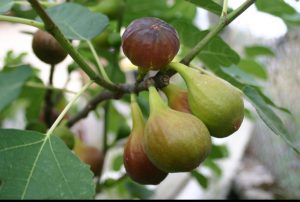Milk thistle tea is an aqueous extract of the active ingredients found in the soft parts of the milk thistle herb, which also is known as silymarin, the name of its main active ingredient. This herbal tea is prepared by pouring 8 ounces (236.5 ml) of boiling water over a heaping teaspoon of the soft plant material, covering the container with a lid or top, allowing it to steep for at least 10 minutes before straining and sweetening it with a natural sweetener.
Steeping is an all-natural process because heated, pure water serves as the solvent. Amedicinal tea also can be called an infusion as long as this method or preparation is used and the soft and delicate parts of the plant are used. The root and the seeds would not be used to make a tea, because they are the hard parts of the herb.
Most of the benefits of milk thistle tea for the liver and gall bladder and are obtained when the tea or infusion form is ingested. This tea, like any other beverage, can be sweetened slightly using an all-natural sugar such as stevia extract, raw honey, agave syrup or one of the varieties of sugar alcohols such as sucralose. Using the bulk herb instead of commercially prepared milk thistle tea bags is preferred because it is the most natural form of the plant employed to make this detox tea. People who suffer from mild liver damage; hepatitis A, B or C; or cirrhosisafter adopting a healthy diet and lifestyle might want to drink milk thistle tea if they are not diabetic, pregnant or suffer from a hormone-sensitive condition such as breast, ovarian or uterine cancer.
The liver detoxifying properties of milk thistle tea also are beneficial for people who have not been diagnosed with liver ailments, because the liver is a vital organ responsible for the detoxification of harmful substances, which helps to prevent them from harming other organs. Health problems and conditions such as skin problems that the average person might not associate with any malfunction of the liver usually are improved when milk thistle tea is consumed on some kind of regular basis. It is not difficult to link certain skin problems with an unhealthy liver, because one of the principal clinical manifestations of liver disease is a condition called jaundice, which is a yellowish discoloration of a person’s skin and the whites of his or her eyes.
Most common milk thistle effects:
Milk thistle is used for a variety of purposes, primarily relating to its positive effects on the liver. While there are few definitive scientific studies proving the effects of milk thistle, this remedy has been well respected in the natural healing community for a long time. Milk thistle effects also include protection from toxins, cancer prevention, and lowering cholesterol. There are also several negative milk thistle effects that may be particularly severe in people with allergies to the plant.
Common milk thistle effects are primarily focused in the liver. Most of the time, people experience an overall improvement in liver function. Milk thistle is thought to repair liver cells that have been damaged and protect new cells from the substance causing the damage. This is an extremely useful effect for many different disorders, including cirrhosis, hepatitis, and mushroom poisoning.
More generally, milk thistle is thought to have anti-inflammatory properties that may help with any number of conditions not related to the liver. Psoriasis, for instance, can be treated with milk thistle to relieve inflamed skin. This plant is also a strong antioxidant, which provides health benefits overall. A variety of lifetime disorders can be combated with antioxidants, although milk thistle is not the only plant capable of providing these benefits.
Milk thistle is also thought to help people heal from cancer. Some people claim that milk thistle stops cancer cells from reproducing and prevents blood from flowing to the tumors. There is need for significant additional medical research before these properties can be considered milk thistle effects.
One common property of this plant is its potential for use as a laxative. Some people hold that milk thistle improves the function of the digestive system and bowels more generally, balancing out systems that are in distress. Others believe that the plant is merely a mild laxative. It is possible that milk thistle promotes regularity and prevents both diarrhea andconstipation. Some people consider the noticeable laxative effect of the plant a benefit, while others consider it an unfortunate side effect.
The most common side effects of this plant include headaches, itching, and indigestion. People who are allergic to the plant may experience more serious effects, such as anaphylactic shock. Frequently, various negative milk thistle effects cause problems involving blood sugaror estrogen levels. As this is a plant that is known to cause reactions with oral contraceptives and a variety of other medications, it is important to seek professional advice before taking any dosage of milk thistle.







